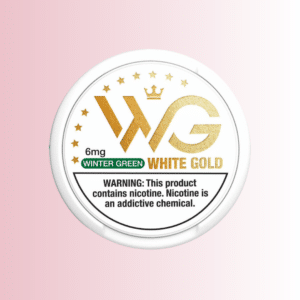Do Zyns Increase Testosterone?
Introduction
With more people turning to nicotine pouches as an alternative to smoking, questions around their long-term health effects are becoming more common—especially when it comes to hormones. One of the most frequently asked is: do Zyns increase testosterone?
ZYN has become a go-to product for nicotine users who want something discreet, tobacco-free, and smokeless. But while ZYN may avoid the well-known risks of cigarettes and snus, its main ingredient—nicotine—still raises questions. Can it affect hormone production? Could it help or hurt testosterone levels?
According to the CDC, over 4.5 million U.S. adults reported using smokeless tobacco products like nicotine pouches in 2022, a number that continues to grow as vaping and cigarette use decline.
In this article, we’ll break down what science says about nicotine and testosterone, how ZYN fits into the picture, and what you really need to know about how these pouches could be influencing your hormone levels.
Understanding Testosterone and Its Role in the Body
Testosterone is the main male sex hormone, though women have it too (in smaller amounts). In men, it’s made primarily in the testes and plays a key role in:
- Building muscle and bone strength
- Increasing libido
- Regulating mood and energy
- Controlling fat distribution
Low testosterone can cause fatigue, low libido, reduced strength, and even depression or anxiety. Naturally, it starts to decline around age 30–35. But lifestyle choices, like smoking or diet, can mess with it too. That’s where the ZYN discussion begins.
Nicotine and Testosterone
How Nicotine Interacts with Hormones
Nicotine doesn’t just wake you up—it has a complex effect on your hormones. It stimulates the HPA axis (hypothalamic-pituitary-adrenal), which controls stress responses and hormone production.
When you consume nicotine, it binds to receptors in the brain, triggering a release of cortisol (a stress hormone). Cortisol is known to suppress testosterone, so this is the first clue that nicotine might lower your T levels.
But there’s more. Nicotine can also stimulate the release of LH (luteinizing hormone) and GnRH (gonadotropin-releasing hormone), which are both involved in testosterone synthesis. So yes, it can also promote testosterone production—confusing, right?
This dual mechanism is why researchers are still debating the real impact.
Does Nicotine Affect Testosterone Levels?
So, does nicotine affect testosterone? The short answer: yes, but it’s complicated.
Some studies say nicotine raises testosterone, while others say it lowers it. One study found that male smokers had about 15% higher total testosterone than non-smokers, possibly due to increased SHBG (sex hormone-binding globulin). But high SHBG can bind up testosterone, making it unavailable for use.
Another study from Sweden showed that men using chewing tobacco had 14% higher testosterone, but also 24% lower sperm concentration. So even if testosterone goes up, other parts of male reproductive health may suffer.
Bottom line: nicotine does interact with testosterone, but the outcome depends on dose, frequency, and individual factors.
ZYN, Vaping, and Hormonal Health
How ZYN Differs from Other Nicotine Products
ZYN is a smoke-free, tobacco-free nicotine pouch. It doesn’t burn, doesn’t stain your teeth, and doesn’t reek like cigarettes. That’s a win, right?
Yes—but while ZYN avoids the thousands of chemicals in cigarettes, it still contains nicotine, which means it could still be messing with your testosterone levels.
So the real question is: do Zyns increase testosterone, or are they just a cleaner way to reduce it?
Do Nicotine Pouches Impact Testosterone?
Right now, we have very limited research on ZYN specifically. But since the active ingredient is still nicotine, we can look at what we know about nicotine pouches in general.
Some evidence suggests that chronic nicotine use—even from pouches—can lead to receptor desensitization, meaning your body becomes less responsive to the hormonal triggers nicotine provides. This could mean a drop in testosterone over time.
So, if you’re using ZYN daily, for hours at a time, you may be nudging your testosterone levels in the wrong direction.
Comparing ZYN to Cigarettes and Snus
Traditional smokers might get short-term testosterone spikes, but they’re also increasing cortisol and facing a faster testosterone decline with age. Plus, their sperm count and fertility are taking a hit.
Compared to that, ZYN users avoid combustion and tar, but they still get the nicotine exposure. That means you’re possibly dealing with similar hormonal effects without the cancer risk—but it’s still not totally risk-free.
Read our guide: Black Cherry Zyn – What Is The Hype?
Nicotine Pouches and Testosterone
Now we come to the key question: do Zyns increase testosterone? Let’s talk through what we know and what we don’t.
Do Zyns Increase Testosterone?
What the Research Says
There is no scientific evidence that ZYN increases testosterone. So if you’re asking, “does nicotine boost testosterone?” or “do ZYNs increase testosterone?”, the answer is probably not—at least not in a reliable or healthy way.
Some early studies on smoking suggest short-term increases in testosterone, but those were often tied to other variables (like SHBG) and were not specifically about nicotine pouches.
Factors That Influence Testosterone While Using ZYN
While there’s no solid evidence that ZYN increases testosterone, there are other real-world factors influencing how people use the product—and one of the biggest lately has been availability. With the ongoing ZYN shortage affecting many areas in the U.S., some users are either cutting back unintentionally or switching to alternatives. Interestingly, this forced moderation might not be a bad thing when it comes to hormone health. And for those sticking with ZYN, the limited supply has made certain ZYN flavors—like Cool Mint or Citrus—especially difficult to find, nudging users to explore milder options or adjust their usage patterns, which could unintentionally support a more balanced nicotine intake.
Read our guide: The Best Zyn Alternatives
Nicotine Pouches and Male Health
How to Use ZYN Responsibly
- Use one pouch at a time for 5–30 minutes
- Don’t chew or swallow it
- Wait 1–2 hours between sessions
How to Maintain Healthy Testosterone Levels While Using ZYN
Worried about testosterone while still enjoying ZYN? Here’s what you can do to protect your T-levels:
- Exercise regularly: Strength training boosts testosterone naturally
- Sleep well: Aim for 7–9 hours per night
- Manage stress: Cortisol is the enemy of testosterone
- Eat smart: Mediterranean-style diets rich in healthy fats, zinc, and leafy greens
- Stay hydrated and avoid alcohol
- Take ZYN breaks: Let your receptors reset occasionally
Conclusion
So, after diving into the science and sorting through the mixed findings, what’s the takeaway? Do Zyns increase testosterone? At this point, there’s no clear evidence to say they do. While some studies suggest that nicotine—ZYN’s main ingredient—can temporarily influence testosterone levels, the long-term effects are far more complex and potentially negative.
Research on nicotine and testosterone shows both increases and decreases depending on factors like dosage, frequency, and individual biology. In some cases, nicotine may stimulate testosterone-related hormones, but in others, it can raise cortisol (a stress hormone that suppresses testosterone) or interfere with testicular function over time.
If you enjoy ZYN, you don’t necessarily have to quit—but it’s smart to use it in moderation, stay active, eat well, and support your hormonal health with good sleep and stress management. Just don’t count on it to be a hormone booster.
And if you’re already a ZYN user, you might as well make the most of it—check out our ZYN Rewards guide about their lyalty program with everything you need to know for 2025.






